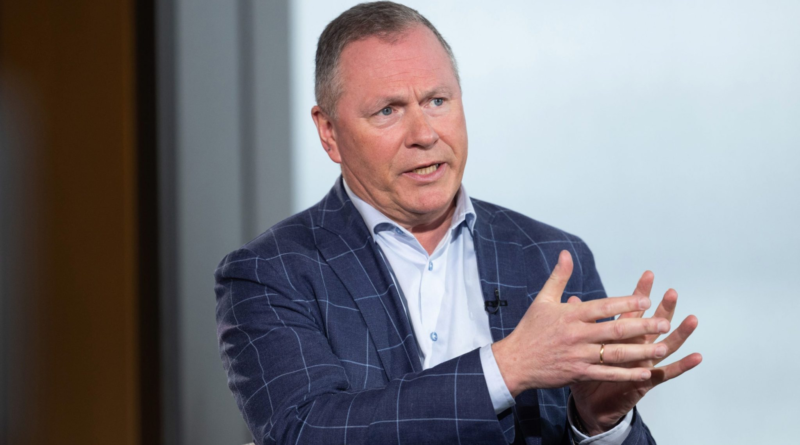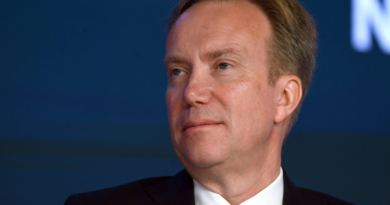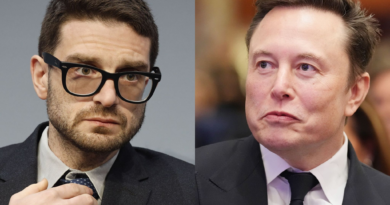‘Americans just work harder’ than Europeans, says CEO of Norway’s $1.6 trillion oil fund, because they have a higher ‘general level of ambition’
Norway’s “trillion-dollar man” believes America’s attitude toward failure is helping propel the nation ahead of its European counterparts—where workers may have a better work-life balance but aren’t as ambitious.
Nicolai Tangen leads Nordic behemoth Norges Bank Investment Management, which governs the revenue earned by Norway’s oil and gas resources, with the aim of ensuring its benefits are distributed fairly between current and future Norwegian generations.
Under Tangen’s leadership since 2020, and over the past decade, the $1.6 trillion fund has invested more and more heavily in the U.S. instead of its closer neighbors in Europe—and it’s no coincidence.
America’s performance, particularly in innovation, is “worrisome” in contrast to Europe, Tangen told the Financial Times.
Part of it comes down to mindset, Tangen added, and how accepting each continent is of mistakes and risk: “You go bust in America, you get another chance. In Europe, you’re dead,” he said.
But it goes deeper than that; there’s a difference in the “general level of ambition,” he added. “We are not very ambitious. I should be careful about talking about work-life balance, but the Americans just work harder,” Tangen continued.
How many hours do Americans work each week?
Data suggests that Tangen is right, but only by a fine margin. According to the European Union, in 2022 the average workweek of people between the ages of 22 and 65 was 37.5 hours. The longest working weeks recorded were in Greece, 41 hours a week, and Poland, 40.4 hours. By contrast, the Netherlands had the shortest working week of 33.2 hours, followed by Germany at 35.3 hours.
Meanwhile, data from the International Labour Organization, last updated in January, showed the average hours workers clocked in the U.S. was 38 hours a week. However, of those employees, 13% worked 49 hours or more per week, which outstripped the majority of European nations.
Moreover, countries like the U.K. have a statutory requirement entitling staff to 28 paid days of leave a year if you’re a full-time employee. In the U.S. it is not a legal requirement for staff to be given any paid time off. However, according to the Bureau of Labor Statistics, the average employee who is in their first year of service takes eight PTO days.
Are CEOs paid too much?
Despite admiring the work ethic of staffers in the U.S., Tangen has made it clear he doesn’t agree with the extreme pay packages handed to execs. Last year he told Fortune that CEOs who earn more than, say, $20 million a year, are “enriching themselves on our behalf.”
“It’s like daylight robbery,” he added.
Norges Bank’s investment strategy has certainly leaned into the U.S. trend: After all, America is home to the Magnificent Seven, which have provided a backbone to the stock market boom and, according to analysts, will continue to do so.
And the backing of an institution like Norges Bank Investment Management will encourage other investors to jump on board. The group is one of the most powerful financial vehicles on the planet: It is the world’s largest single owner of global stock markets, controlling 1.5% of shares in the world’s listed companies.
Investing in the United States
The organization also owns swaths of high-end property, including a 25% stake in London’s Regent Street and an approximately 50% holding in offices in New York’s Times Square and on Washington’s Pennsylvania Avenue.
Investments in the U.S. now represent 46.9% of Norges Bank’s portfolio, whereas a decade ago the U.S. represented just under 30%. Going back a further 10 years, in 2003 the organization’s investment in America made up just 26.3% of all investments.
Conversely, in 2003, 59.5% of Norges Bank’s portfolio was invested in European countries, a figure that, by 2023, had fallen to 28.7%.
The 2024 election looms over business
Of course, like many American investors, Tangen is closely watching the 2024 presidential elections, which could rock the investing boat.
The CEO, who as a public servant earns less than $1 million a year, said there were people within the organization who were concerned about the upcoming race, but added, “I probably shouldn’t say too much about that. We just invest in America in great companies for the long term. It won’t have any implications for how we allocate our capital. We have nearly half the assets in America; we will stay invested in America.”
Per the FT, Magnificent Seven stocks make up 12% of Norges Bank’s equity holdings, with Tangen adding, there’s “an argument for the big getting bigger, [and] the winner taking it all.”
There is, of course, a common thread among all the Magnificent Seven businesses—and it’s the current favorite phrase of Wall Street: artificial intelligence.
Again, this is an area where, Tangen said, Europe was making life difficult for itself. Tech CEOs are frustrated, he said, by the amount of red tape in Europe compared with the U.S.
Admittedly, even those who are leading the way with AI in the U.S. are asking for guardrails—just ask OpenAI’s Sam Altman and Tesla CEO Elon Musk.
“I’m not saying it’s good, but in America you have a lot of AI and no regulation; in Europe you have no AI and a lot of regulation. It’s interesting,” Tangen added.
A version of this story originally published on Fortune.com on April 25, 2024.




